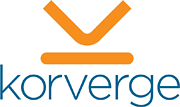Referrals are gold in a legal practice. They arrive with built-in trust: someone has already vouched for you. Yet too often, lawyers squander referrals through slow follow-up or vague handling. In business development, a referral is a live spark – you need to act quickly before it fizzles. They are often the easiest opportunities to convert into meaningful work, but only if treated with the attention they deserve.
In one of my coaching sessions with a lawyer in a mid-size firm, we had agreed that he would follow up with a referral he had received just a few days earlier. It was a warm introduction from a long-standing client who had gone out of their way to connect him to a business colleague in need of legal help. When we met again three weeks later, he sheepishly admitted he hadn’t done anything about it. He was too busy. By then, the referral had already found another lawyer. What struck me most was not just the lost piece of work, but the damage done to the client who had made the introduction. They had put their own reputation on the line, and it hadn’t been respected. We discussed the situation and I was very blunt. That experience became a turning point for him – he realized that every referral deserves immediate attention, and he committed to treating them with the same urgency as any existing client matter.
To avoid the above situation, I always tell those I coach there is first simple rule: respond right away. Even if you don’t yet have all the answers, a prompt acknowledgment – “Thanks for connecting us, I’ll follow up right away” – goes a long way. This reassures both the referrer and the potential client that their trust was well placed. Delays, by contrast, send the wrong message: lack of interest, disorganization, or worse, indifference. Even a short, courteous response is better than silence.
Referrals are opportunities in motion. Your response should push things toward a clear next step. That might mean setting a short introductory call, offering to send a brief outline of how you might help, or even suggesting a coffee meeting. The important thing is to avoid leaving matters in limbo. Momentum matters – and when it slips, so does your chance of converting the referral into real work.
Equally important is closing the loop with the referrer. A simple thank-you note after you’ve connected goes a long way. Keep them updated – at least enough so they know their introduction was worthwhile. And where appropriate, reciprocate if the referral was from another professional. Referrals thrive on reciprocity.
As I always say to those I coach, “referrals are a privilege”. They’re not just names. They’re trust transferred to you by someone else. Treat them with urgency, respect, and structure. If you do, you’ll see referrals evolve into one of your most reliable – and rewarding – sources of new work.
If you are a lawyer aiming to strategically enhance your business development, I’m available to help. Let’s arrange a complimentary discussion to explore how coaching might aid your progress and address any queries you might have. Please reach out to me at larry.stroud@korverge.com to schedule a time.
I do ‘Business Development’ coaching. Not life coaching. Not career coaching. The coaching is specifically tailored to business development in the legal profession. My focus is on helping lawyers build and retain client relationships, as well as winning new clients.
I have been a partner at two international firms and have dedicated the past 20 years to coaching individual lawyers in business development.
My clients range from lawyers in national and international law firms to those in regional, small office, and specialized boutique firms, as well as solo practitioners. Based in Toronto, I work with clients throughout Canada, having also worked in several other countries. I’m typically engaged either by individual lawyers or firms on a retainer basis to provide ongoing coaching for their lawyers at various stages of their careers, and in certain cases, to lead targeted workshops.

